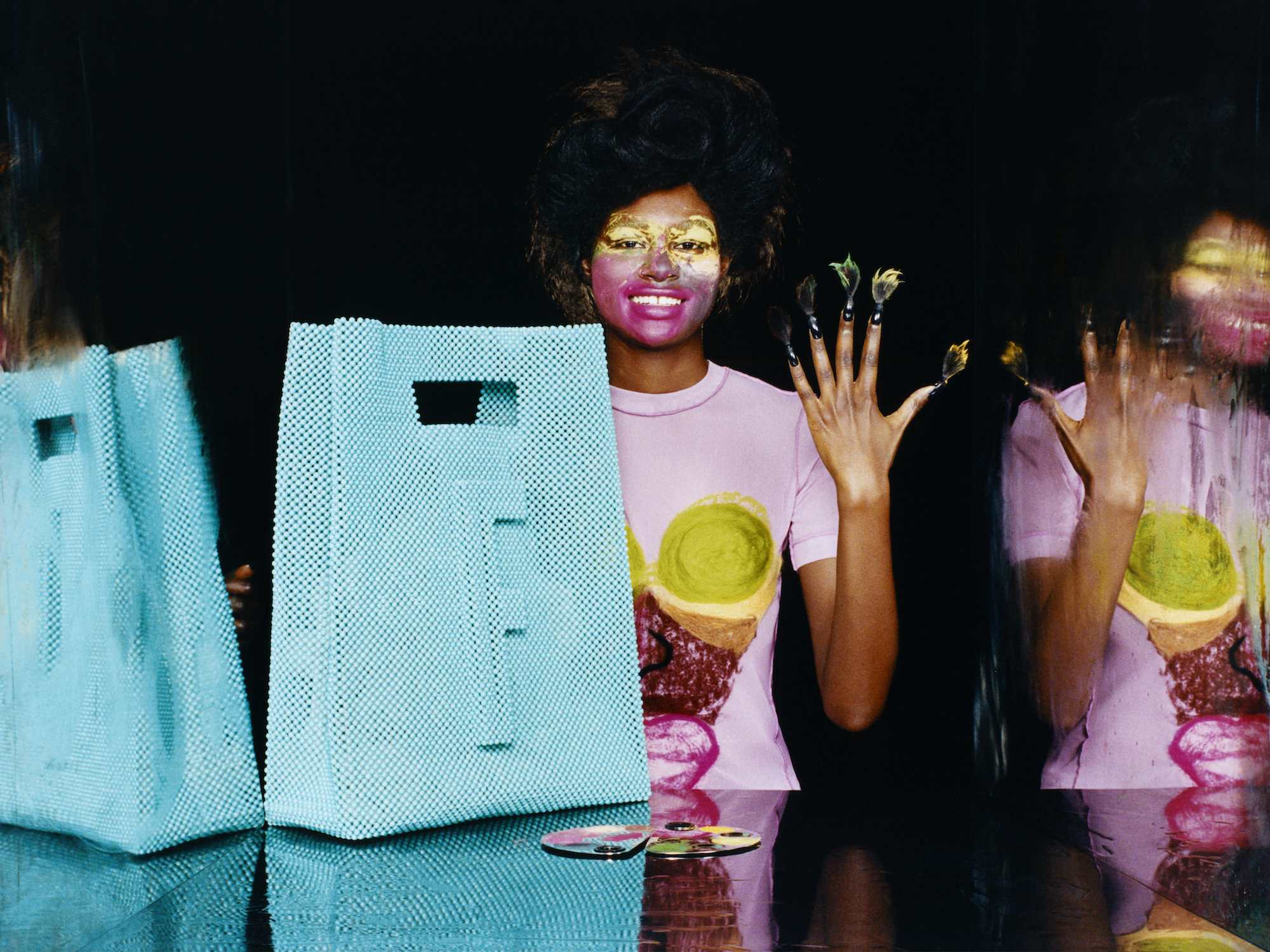This story originally appeared in i-D’s Utopia in Dystopia Issue, no. 362, Spring 2021. Order your copy here.
Look at the credits of almost any fashion shoot over the years and you’ll see that the limelight has typically been reserved for three professions at the top of a blindly accepted image-making hierarchy: photographers, stylists and designers.
While no one can contest the indispensability of these roles, it is worth noting that our tendency to feverishly praise their talent often comes at the expense of recognising an army of highly skilled individuals, without whose contribution the final result would be a pale imitation of the inspiring imagery we see.
“We see these amazing shoots coming out in magazines, but there isn’t necessarily a heavy focus on the beauty of the crafts of all the people who contribute to them,” Feben, the young London-based designer begins. That’s why for Face Me – the project she’s styled and creative directed for this issue, shot by Joyce Ng – she decided to shift that paradigm, “spotlighting people’s artistry and really bringing that out.”
And though Feben’s designs and creative vision may serve as the vehicle for the shoot’s impact, the idea here is to place the focus squarely on the sterling work of the members of the London creative community she’s part of – like hairstylist Virginie Moreira, make-up artist Ammy Drammeh, nail technician Sylvie Macmillan, set designer Dora Miller and producer Yasser Abubeker – “bringing the beauty of each of their crafts to the forefront.”
Feben first emerged into the industry’s public consciousness just 12 months ago with her Central Saint Martins MA Womenswear graduate collection, It’s Not Right, But It’s OK. She quickly earned attention for her ability to charge clothing with an urgent political message, parodying and reclaiming the strategies by which fashion excludes Black femme bodies like her own. A navigation of her own transcultural identity (Feben was born in Pyongyang and raised in Sweden by her Ethiopian mother until the age of 18, when she moved to London to study at London College of Fashion), each of her garments is a subtly surreal recount of the tumultuous passage of her body through the environments it has occupied. Suits, for example, are tailored with flared hips and an accentuated bust, or even printed on one-size stretch mesh tops, shattering the garment’s long upheld status as the preserve of a thin white-adjacent body ideal. Despite the onset of the pandemic shortly after leaving the London school’s studio, the year that’s passed since then has seen the designer leap from strength to strength. Over the course of 2020, she styled and designed the opulent gowns worn in Beyoncé’s paean to Black women’s beauty, BROWN SKIN GIRL, and has dressed, among others, Erykah Badu, Janelle Monáe and Michaela Coel.
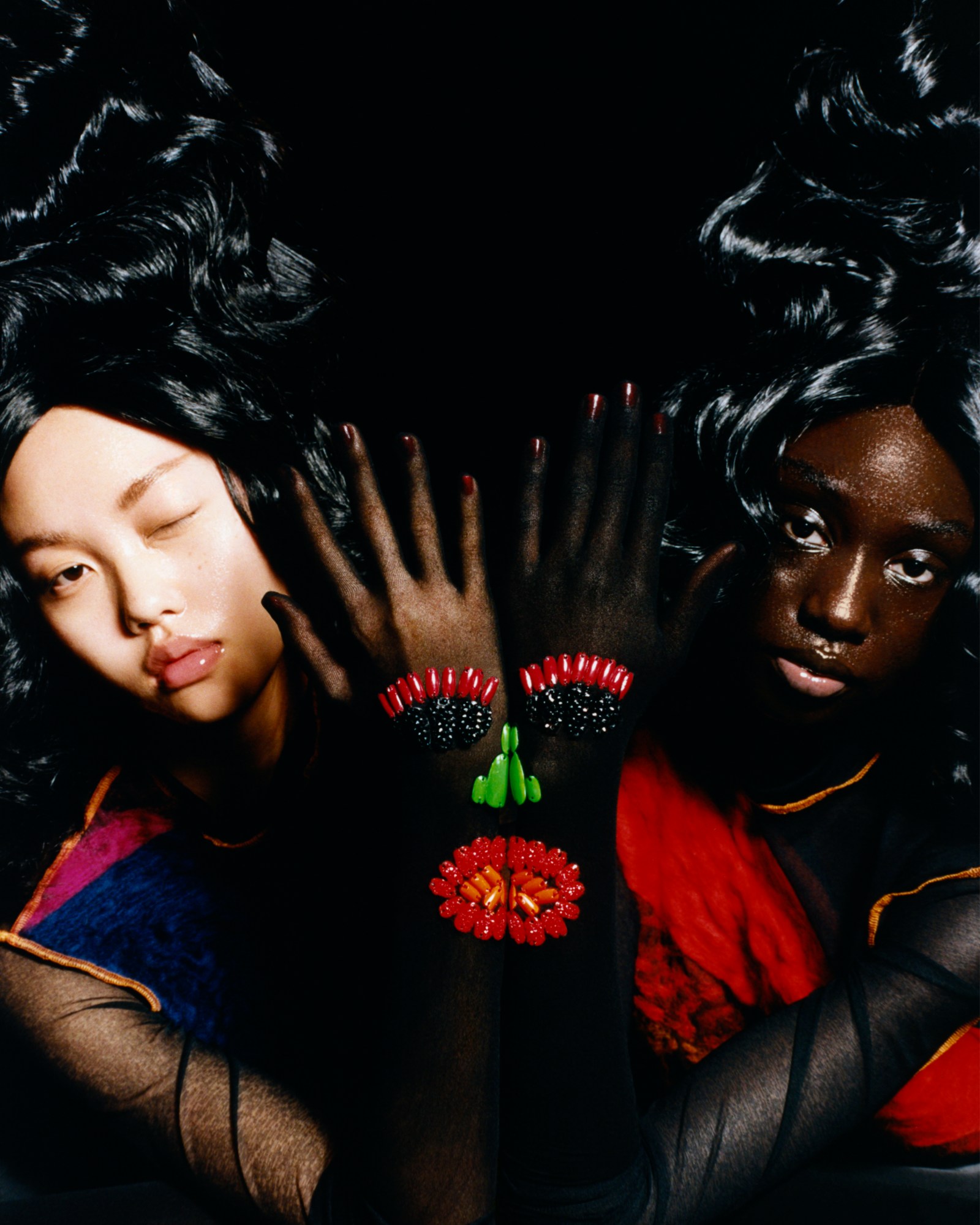
Those familiar with Feben’s MA collection will immediately recall its stand-out piece, a boned fuchsia canvas gown with an aquamarine bust and a straw-blonde cowl, which, seen from a couple of steps back, resembled a surreally proportioned face. Alongside this was a figure-hugging dress with a trompe l’oeil print of a nude Nina Simone, and a photo of her own mother shortly after her arrival in Sweden from her native Ethiopia translated onto crocheted bead bags. Feben’s literal representation of faces and bodies in her work became a feature of her creative grammar – a punkish, adamant tactic of creating space for those so often omitted from the fashion conversation.
Saying that Feben’s approach to creative work feels of its time doesn’t quite hit the mark; rather, it is of the future that we spent so much of last year discussing. Indeed, as the industry tries to reorient itself towards more community-conscious ways of working, the ethics at the heart of Feben’s practice are already being recognised as signposts for the direction we all need to head in. Last September, she was selected as one of five top-tier recipients of the Metallic Fund, a grant and mentorship scheme established by Metallic Inc.’s Grace Ladoja and Alex Sossah to nurture future generations of Black creative talent. It was through the scheme that she was first introduced to i-D’s Fashion Director Carlos Nazario, who offered her these very pages to bring her vision to life. “There’s not a lot of people that put that kind of trust in you,” Feben says. “It’s really important to uplift new kinds of artists and new ways of working. I really appreciate his encouragement.”
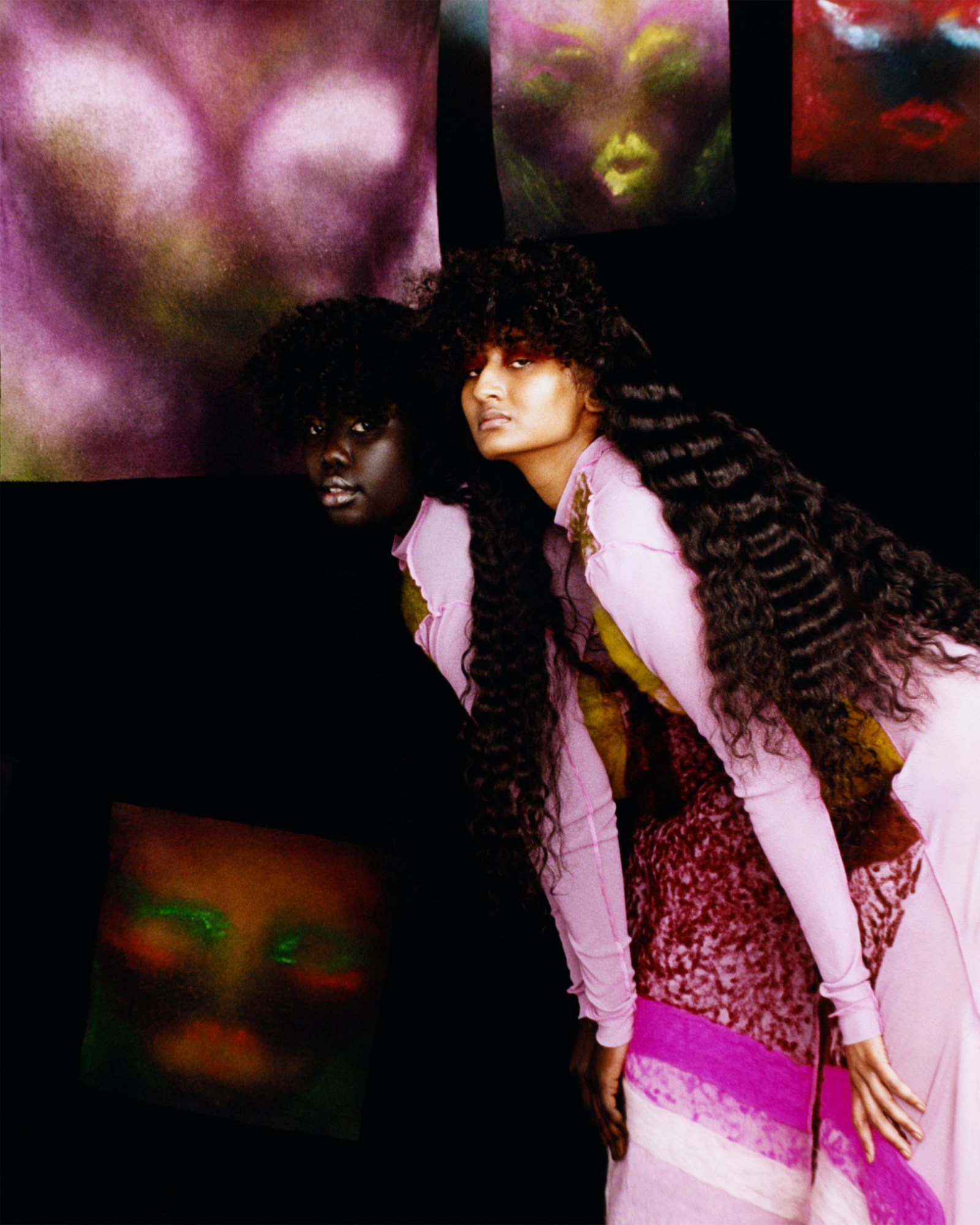
That the act of uplifting should be a mutual enterprise is a given, but for young independent designers with limited resources, finding ways to turn intention into action can prove challenging. Last summer, though, in the wake of the Black Lives Matter protests, Feben demonstrated that (despite its small size) her business could be put to use for social benefit. She designed a T-shirt in collaboration with photographer Dexter Lander, with all proceeds donated to Black Minds Matter, a UK-based charity offering mental health support to Black people in need. “Obviously, I am a designer and artist, not a doctor. I’m not gonna save the world by making some dresses,” Feben humbly concedes. “But there is some active change that I could make. I just thought of different ways I could help in a pandemic, just by small actions. If you can change at least one person’s day or make them smile, that’s pretty cool. And if they can have a free therapy session because of you, that’s even cooler. If I can do something with no money, I know that big corporations can.”
Feben’s altruistic inclination shouldn’t be mistaken for disinterest in growing her own business. By the time you’re reading this, a revised edit of her graduate collection, along with new pieces seen on these pages, will have launched on Canadian e-tailer SSENSE – a platform known for incubating some of the industry’s brightest independent stars. Still, even with the prospect of growth on the horizon and the compromises that may entail, the sense of care for others at the heart of her work is non-negotiable. “I think that’s something I’ll always carry forward,” she says. “There are obviously always different things that come up, but it’s important to be able to say no to things that don’t align with you. It’s really more about who you are as a person, and what you stand for.”
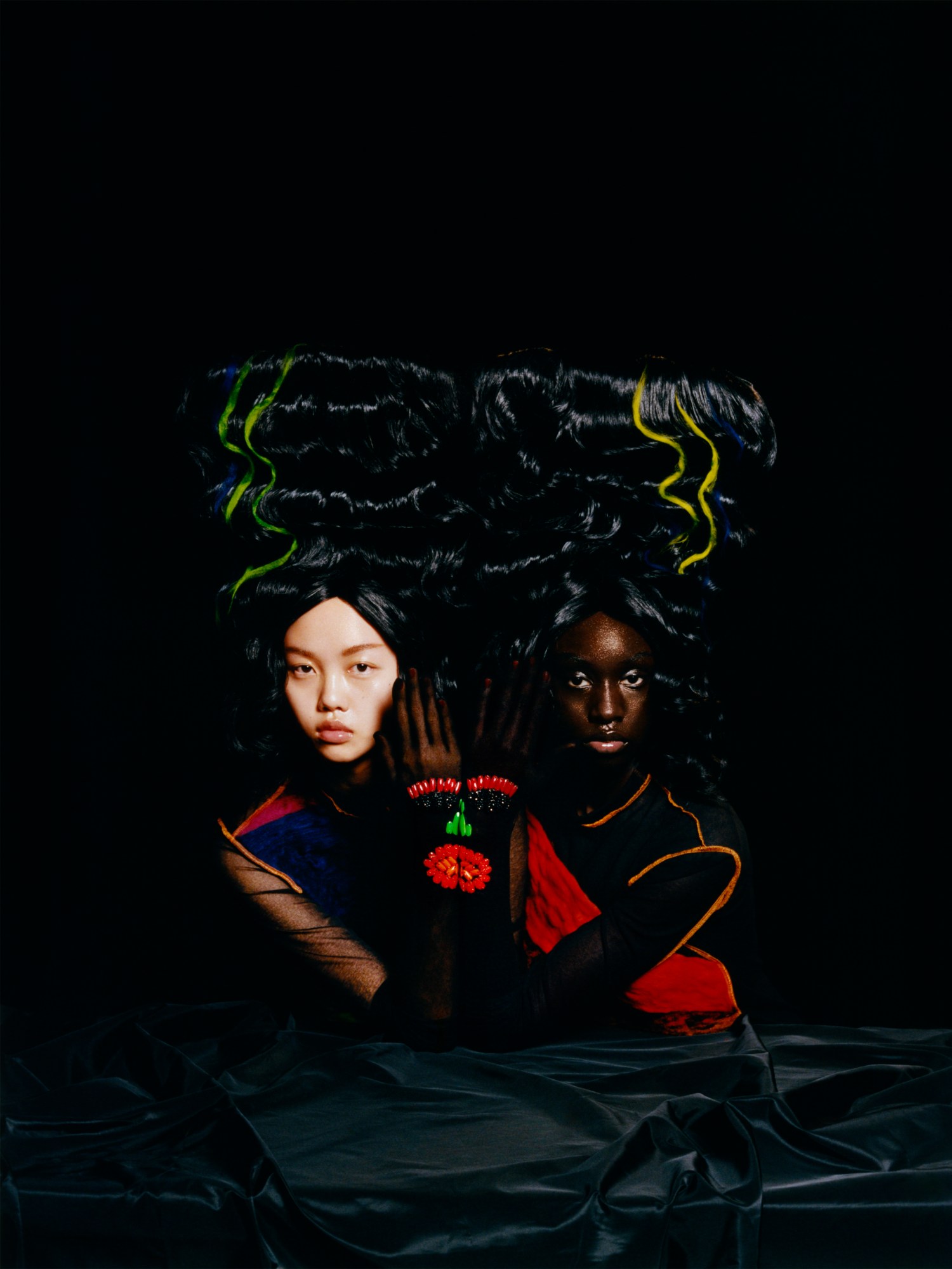
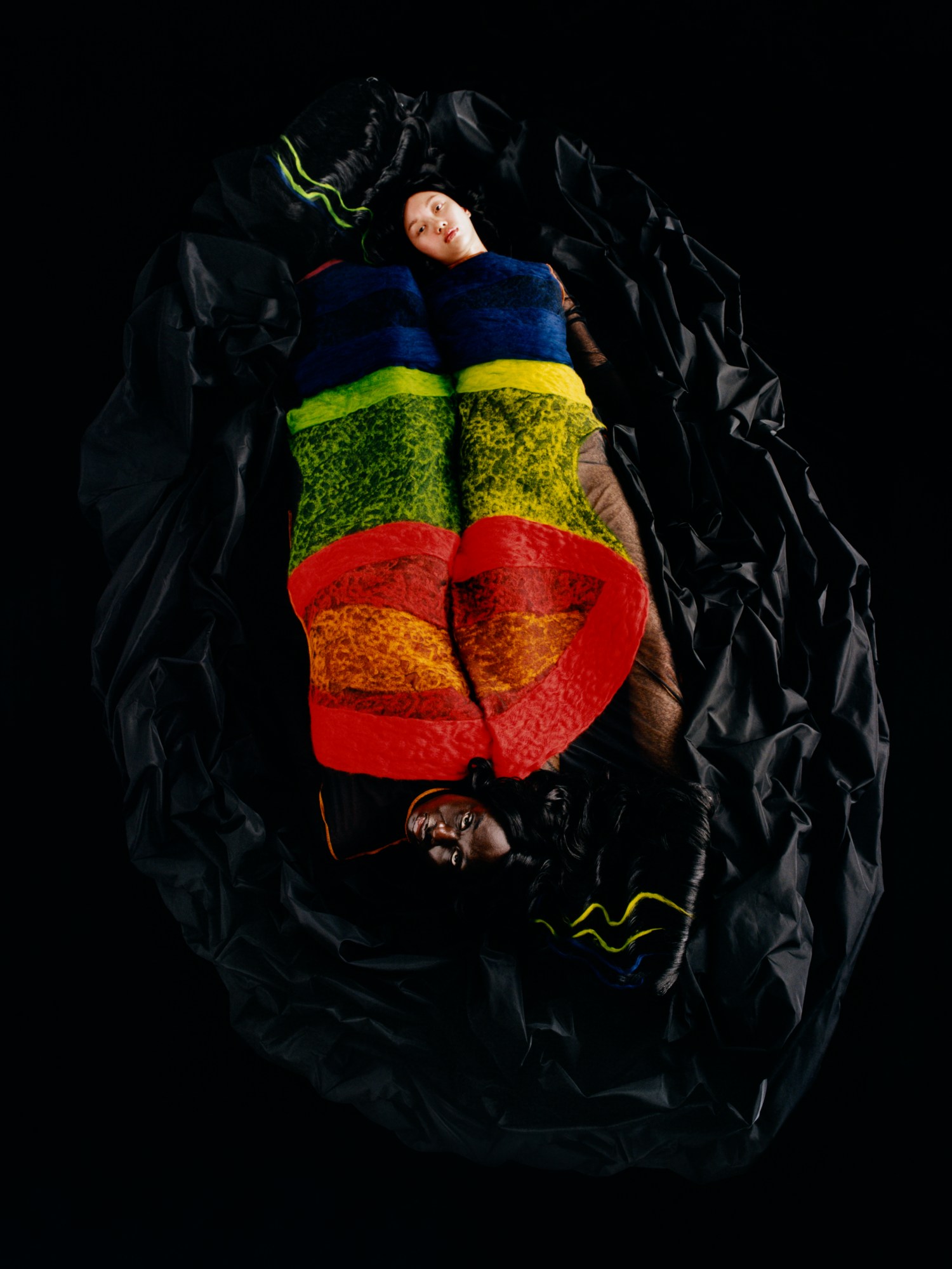
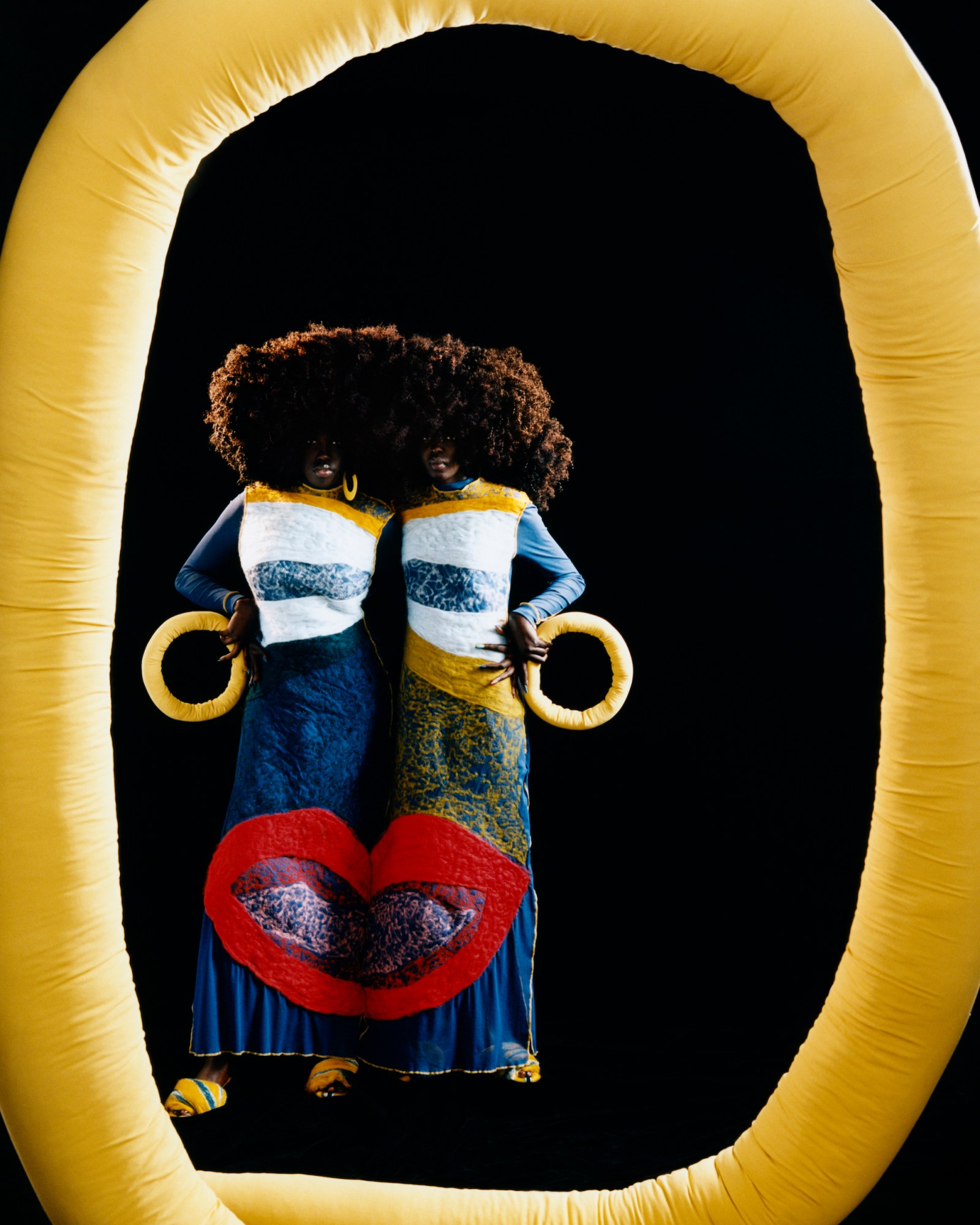
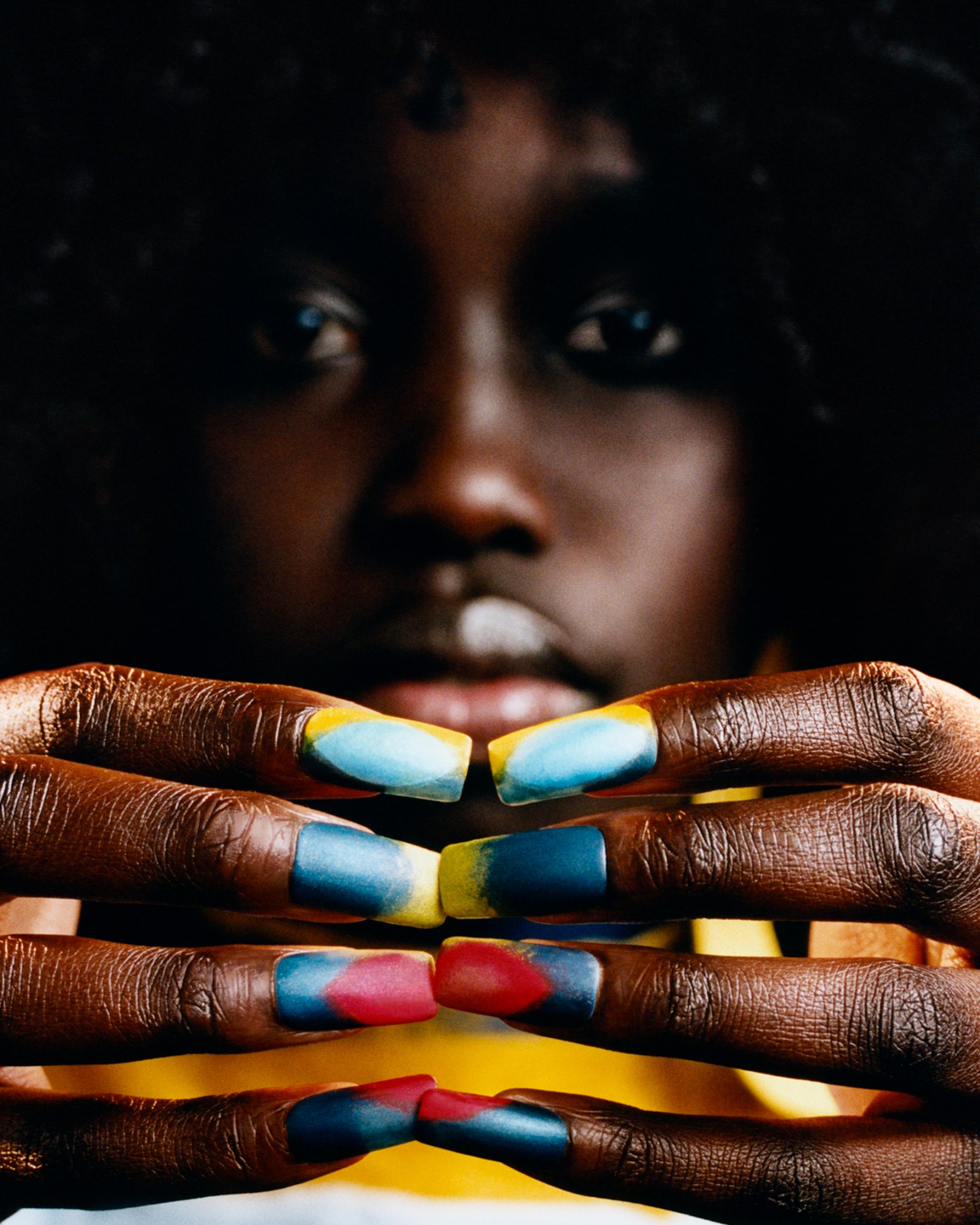
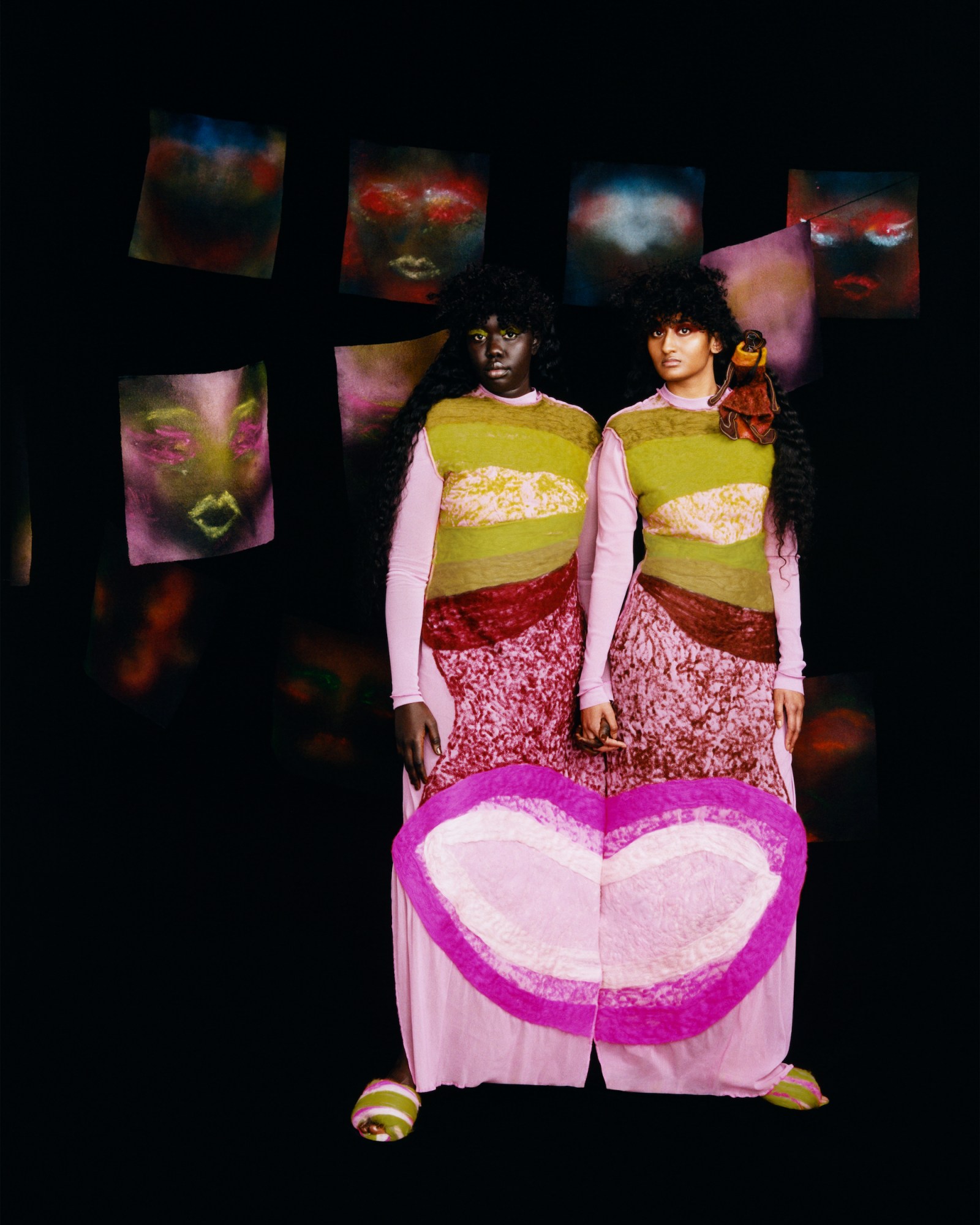
Credits
Photography Joyce NG
Creative direction and styling Feben
Hair Virginie Moreira at MA+World Group using Oribe.
Make-up Ammy Drammeh at Bryant Artists using Mac Cosmetics.
Nail technician Sylvie Macmillan at MA+World Group using Chanel.
Set design Dora Miller.
Photography assistance Matt Kelly, Víctor Paré and Adela Campbell.
Styling assistance Eduardo Veloso Moreira.
Hair assistance Alisha Ferguson-Adu.
Make-up assistance Quelle Bester.
Set design assistance Jess Griffin and Lucy Barsegian.
Production Yasser Abubeker.
Retouching Midnight Studio.
Casting director Samuel Ellis Scheinman for DMCASTING.
Casting assistance Alexandra Antonova
Models AJ Yel and Akoul Den at Milk. Jay Jay Bol at Wilhelmina. Azita Thanigasalam.
